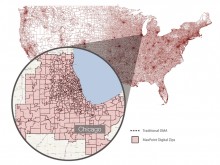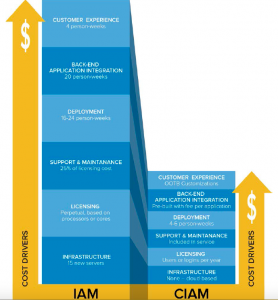Google To Disable 1% Of Third-Party Cookies In Chrome

Google plans to deprecate third-party cookies for 1% of Chrome users in the first quarter of 2024 to support developers conducting real-world experiments that assess readiness and effectiveness without third-party cookies.
To prepare for a web without third-party cookies, it’s important for companies to evaluate solutions that incorporate the Privacy Sandbox APIs,” Victor Wong, senior director of product management at Google, wrote in a blog post.
Supporting the move, Google will introduce in the last quarter of 2023 the ability for developers to simulate Chrome third-party cookie deprecation for a configurable percentage of users. This goal to completely deprecate third-party cookies in scheduled for second half of 2024.
This “more privacy-conscious approach” lets users manage interests and grouping in cohorts based on similar browsing patterns. It should enable developer-controlled testing that can benefit from higher levels of third-party cookie-less traffic.
With the launch of Chrome 115 release in July, Google will make Privacy Sandbox’s relevance and measurement APIs generally available to all Chrome users. Advertisers and developers will have the ability to test the APIs with live traffic. After this API release in July, the company doesn’t plan to make any significant changes to the API before the deprecation of cookies.
Companies should evaluate integrating these APIs into their products as they plan the transition to more private solutions.
Google committed to develop plans with the UK’s Competition and Markets Authority (CMA) in accordance with its prior public timeline. The idea is to continually address comments made by the CMA, as Google prepares for third-party cookie deprecation beyond one percent of Chrome users once the CMA has completed its assessment.
Wong expects a range of testing to take place based on different goals, from single-company tests, to broader coordinated tests across multiple organizations. We also encourage developers to adopt and test the Privacy Sandbox APIs as part of end-to-end solutions.
(13)
Report Post




